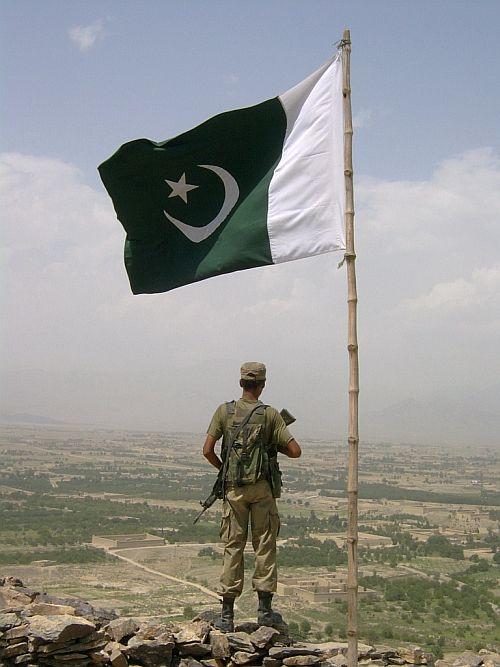
Seema Mustafa believes that Pakistan Army chief Ashfaq Kayani would not march his troops into Islamabad for it would only play to the advantage of an unpopular Yousaf Raza Gilani's government.
Pakistan has earned a slight reprieve from chaos after Prime Minister Yousaf Raza Gilani told media persons on the sidelines of a function that all is well between the government and the army, and that there was no rift.
But the situation is so fragile that the situation can change for the worse yet again by the time this comes out in print.
The current controversy of course began with memogate that is now under enquiry but after a lull the controversy sought to explode again when Gilani gave an interview to a Chinese journalist maintaining that the responses given by the Pakistan Army chief and the ISI chief to the Supreme Court had not been filed according to the rules of procedure. This unnecessary comment came even as the army chief Ashfaq Kayani was visiting China.
This was then followed by a hard 'strike' from Rawalpindi with the Inter Services Public Relations, the army's information wing, issuing a strong statement saying that the allegations of the prime minister "had serious ramifications with potentially grievous consequences for the country."
...
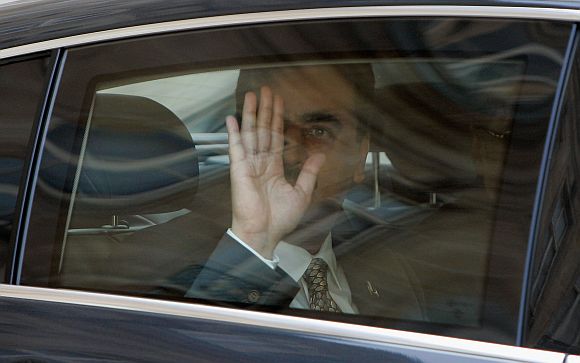
Alongside Gilani sacked the defence secretary, a retired general known to be close to the army chief. The army posted a brigadier at the same time to command the 111 brigade that has, historically, been deployed to secure Islamabad when the military has sacked political governments in the past.
This was, of course, more than enough to set the media ablaze and within minutes predictions of a military coup buzzed through the air as representatives fought hysterical battles on television channels.
No one of course stopped to ask the main questions, one, why is this happening; two, why is Gilani a creature of the Pakistan army wilfully joining swords with the top leadership; and three, where is President Asif Ali Zardari in all this?
One, a coup is highly unlikely, simply because the army and its chief are in no mood for it. Kayani is not a general with political ambitions, and has tolerated President Zardari's government simply because of this one overriding aspect of his personality.
...
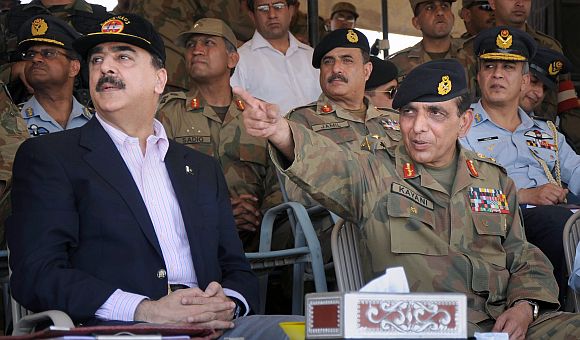
The deep distrust between the Pakistan Army and the opposition Pakistan Muslim League-Nawaz makes it impossible for Kayani to even consider Nawaz Sharif as an alternative, and all reports seem to suggest that Imran Khan is being looked at (groomed as some would have it) as the next political leader in the saddle.
However, Kayani will not move to take over unless the army is virtually pushed with its back to the wall, and some analysts in Pakistan believe that this is precisely what Gilani is trying to achieve with his current antics.
Military rule would re-establish the waning popularity of the Pakistan Peoples Party as an anti-army, pro-democracy party and diminish the opposition as it were. However, the army is not keen to bite the bait as yet and the war of nerves and rhetoric between the two sides is thus, likely to continue.
Two, going against PPP is the huge unpopularity of Zardari who still controls the party organisation regardless of the general public's evident disaffection. Gilani by himself is not recognised as a leader in Pakistan, and the fall of the government will be the end of his days of glory as well.
...
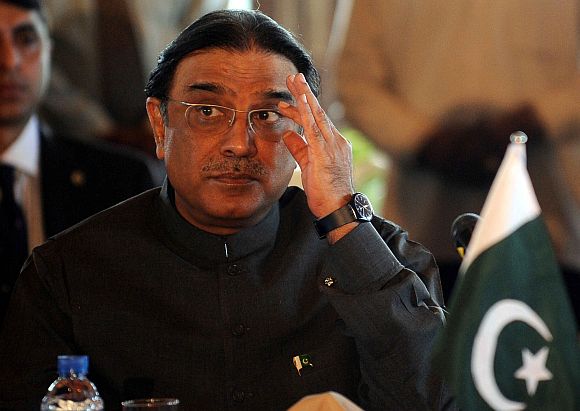
The growing popularity of Imran Khan directly corresponds to the unpopularity of Zardari, with the PPP having lost significant leverage within Pakistan during the months of power. Zardari is highly expendable and in the current war of nerves, the army's confident inflexibility arises from this knowledge.
The Pakistan president has been very silent although he is known to be the manipulator behind the scenes, and is currently playing the chess board as never before. He is an acknowledged master of the moves in Pakistan, with Kayani having the support of the army, and this time around the people too, but not the deviousness to check mate.
Zardari, some reports suggest, is travelling in Europe, taking a few days off to visit his chateau in Normandy. Not many in the PPP defend him today although there is no move from within the party to remove him.
Western powers, if the 2008 WikiLeak cables can be taken as an indication, do not have a high opinion of the President with the then chief of the British Defence Staff John Stirrup describing him as "clearly a numbskull."
...
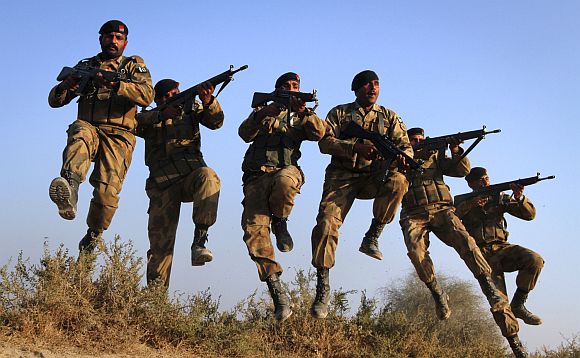
Three, although the current battle between the civilian and military establishment has its genesis in the drone attacks by the US on the Pakistan soldiers, Washington seems to be more of a bystander this time than a player.
The drone attack killing 25 soldiers on the Pakistan-Afghanistan border was the final straw insofar as the Pakistan Army was concerned with Kayani and his commanders hardening positions, stopping the use of the Shamsi air base by the US forces, and cutting off supply lines.
This remains in force with the Americans facing the heat. The Zardari government on the other hand wanted the Army to dilute its position, and after a series of meetings and half apologies by US officials, tried to restore the status quo. But Kayani and his commanders were not willing and this added to the tensions between the two sides.
Ironically, thus, the Pakistan Army that was always ahead of others in the country in embracing the US is now leading the opposition while the civilian government in power is keen to restore relations, and let bygones be bygones.
Gilani has backed off at the time of writing this, as he must, to ensure that the fig leaf of democracy remains in place and the Pakistan Army is not encouraged to take over. There can be no two opinions that despite its deep reluctance to assume political control, the army will move ahead if the confrontation assumed no-return proportions.
...
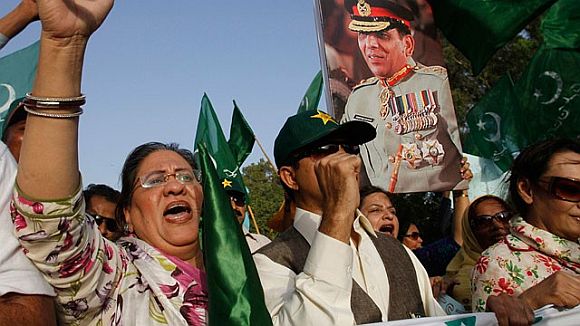
The popularity of the PPP will not increase except perhaps amongst sections of its own supporters, as people are not in a mood for instability and recognise Kayani as a general who would like to stay away from political control.
Besides the support base of Nawaz Sharif in Punjab remains intact, with Imran Khan attracting the youth in droves. There is thus a political alternative to the PPP within Pakistan that is willing to face the people and contest elections.
The situation is moving rapidly not towards a coup but an early election. The army has made it clear it wants to work through constitutional means that could be elections earlier this year instead of the scheduled 2013. It is thus for Zardari and Gilani to determine whether the elections are held under a civilian government, or under military supervision.
The last will be another blow for Pakistan and its people's desire for democracy and stability. But in a state based on relatives, military supervision will be infinitely better than a pervasive military coup installing a military government in Islamabad.
Click on NEXT to go further...
...